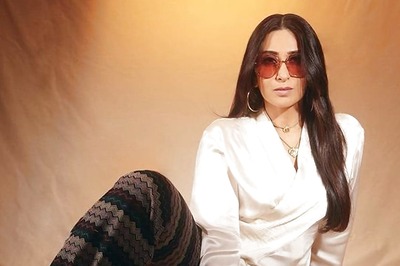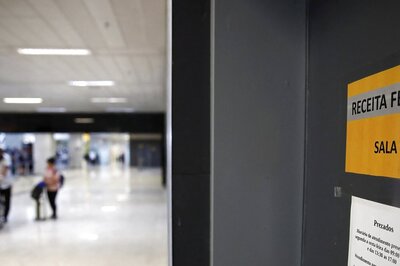
views
Sabarimala head priest, Kandaru Rajeevaru on Thursday dismissed reports that the tantric family had planned to close down the Lord Ayyappa temple if young women entered it to offer prayers.
He was reacting at Sannidhanam, the temple complex, after some reports were widely shared on social media.
However, the priest appealed to the women, belonging to the age group of 10-50 who were restricted as per the centuries-old traditions of the shrine, not to come to Sannidhanam and create problem.
"We have never said that the temple will be closed if women of the traditionally barred age group enter there. It is our duty and responsibility to carry out the monthly poojas and other rituals. We will not break the custom," Rajeevaru said.
He also said Sabarimala is a place where women are respected. The second major deity at the hillock shrine complex is 'Malikappurathamma,' a goddess. "We respect the verdict of the Supreme Court. But, considering the sentiments of devotees and the tradition and rituals of the shrine, I humbly request you (young women) not to come to Sabarimala," Rajeevaru said.
Expressing pain at the turn of events, tantri said it was yet to ascertain how violence had erupted at the prayer meeting protest.
He also urged everyone not to turn the temple complex, the 'poonkavanam' (garden) of Lord Ayyappa, into a 'war zone.'
Meanwhile, V N Vasudevan Namboothiri, a native of Palakkad district, was elected as the new 'melshanthi' (chief priest) of the Sabarimala Lord Ayyappa Temple for the next one year.
He is presently serving as the priest of an Ayyappa temple in Bengaluru. M N Narayanan Namboothiri, hailing from Chengannur, would be the new priest of 'Malikappuram' shrine at the hill temple complex.
Both the priests were selected through a draw of lots conducted in front of the sanctum sanctorum. They will take charge on November 17, the day the temple would be opened for the three-month-long 'Mandalam-Makaravilakku' festival, Travancore Devaswom Board sources said.
On September 28, a five-judge Constitution bench of the SC, headed by then chief justice Dipak Misra, lifted the centuries-old ban on the entry of women of menstrual age into the shrine.


















Comments
0 comment